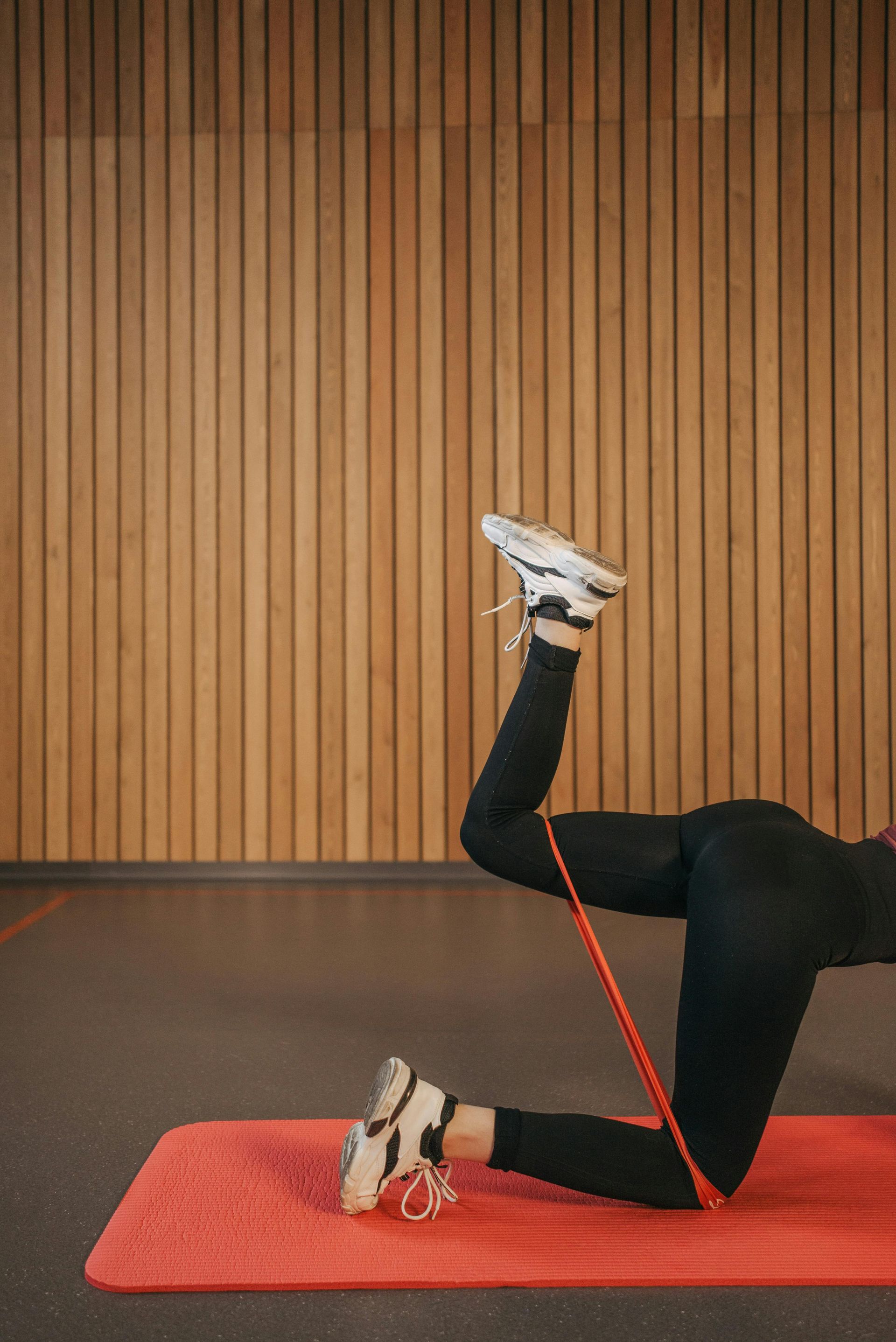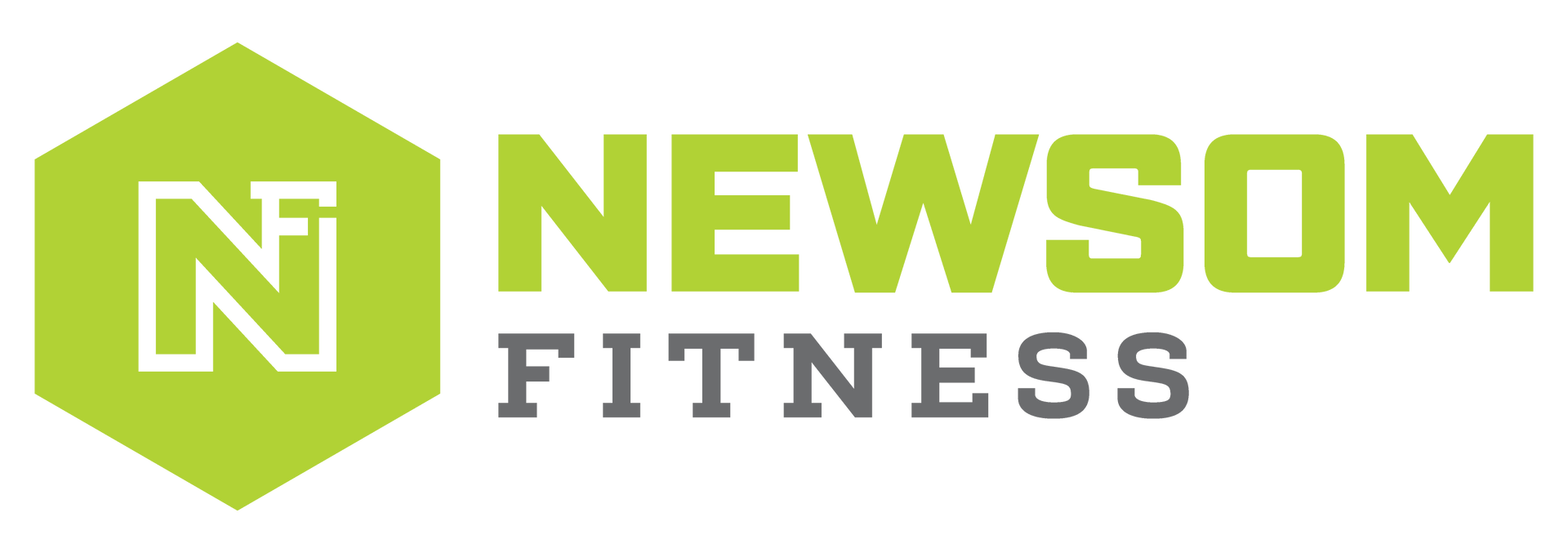Age with Confidence: A Guide to Fitness, Wellness, and Self-Care for Aging Gracefully
At Newsom Fitness, we believe that aging is not just about growing older—it's about growing stronger, wiser, and more confident. While the changes that come with aging can be challenging—whether it's decreased energy, joint pain, or a shift in body composition—they don’t have to diminish your vitality or confidence. In fact, with the right mindset, self-care habits, and fitness routine, you can age gracefully and continue living a healthy, vibrant life.
Aging with confidence means embracing the journey and learning how to care for your body, mind, and spirit in ways that adapt to your evolving needs. Fitness and wellness are key to this process, helping you maintain strength, mobility, mental clarity, and a positive outlook on life. Let’s explore how fitness, wellness, and self-care can empower both men and women to embrace the aging process with confidence.
Embracing the Changes That Come with Aging
One of the biggest challenges of aging is accepting that our bodies and minds will naturally change over time. However, these changes don’t have to limit your quality of life or self-worth. Instead, they present an opportunity to learn more about yourself and adopt new habits that support your health and well-being as you grow older.
Here are some common changes that occur with aging and how you can embrace them with confidence:
1. Slower Metabolism and Weight Management
As we age, our metabolism naturally slows down, making it easier to gain weight and harder to lose it. This is due to the decline in muscle mass (a condition known as sarcopenia) and hormonal shifts that affect how our bodies store and burn fat. Despite these changes, it’s possible to maintain a healthy weight and stay strong with the right approach.
What You Can Do:
- Stay Active: Regular physical activity is essential, especially strength training, which helps you maintain muscle mass and keep your metabolism efficient. Aim for at least 150 minutes of moderate aerobic activity per week, plus two or more days of strength training exercises.
- Eat for Your Age: Focus on nutrient-dense foods that provide energy without excess calories. Protein is especially important for muscle maintenance, while fiber supports digestion and helps you feel fuller longer.
- Be Patient with Yourself: Weight fluctuations are normal as you age, and it’s important to be kind to yourself. Focus on feeling healthy and strong, rather than striving for an unrealistic ideal.
2. Decreased Mobility and Flexibility
Joint stiffness and reduced flexibility are common as we age, which can make everyday movements like bending, walking, or lifting more challenging. These changes can affect your confidence in physical activities, but with regular movement and stretching, you can maintain mobility and flexibility.
What You Can Do:
- Incorporate Stretching: Make stretching a part of your daily routine to keep your muscles and joints flexible. Activities like yoga and Pilates are excellent for improving flexibility, balance, and core strength.
- Focus on Functional Fitness: Functional exercises mimic everyday movements, such as squats, lunges, and push-pulls, and help you improve your range of motion. These exercises ensure you stay strong for daily tasks.
- Listen to Your Body: Always listen to your body and modify your exercise routine when needed. If you feel pain, adjust your movements to fit your body's needs. Don’t hesitate to consult a fitness professional if you need help making adaptations.
3. Bone Health
As we age, our bones naturally lose density, which increases the risk of osteoporosis and fractures. This is especially common for postmenopausal women, but men also face the risk of bone loss as they grow older. Taking steps to maintain bone health is crucial for aging confidently.
What You Can Do:
- Engage in Weight-Bearing Exercise: Activities such as walking, jogging, and resistance training help stimulate bone growth and maintain density. The impact from these exercises strengthens bones and helps prevent fractures.
- Ensure Adequate Calcium and Vitamin D: A diet rich in calcium and vitamin D supports bone health. Foods like dairy, leafy greens, and fortified products are excellent sources. Sunlight helps your body produce vitamin D, but supplements may be needed, especially for older adults.
- Avoid Smoking and Excessive Alcohol: Both smoking and heavy drinking weaken bones, so minimizing these habits is essential for maintaining strong bones as you age.
4. Changes in Skin and Appearance
Aging affects our skin, leading to wrinkles, dryness, and reduced elasticity. While these changes are natural, they can sometimes impact how we feel about our appearance. Embracing your changing skin and learning to care for it can help you maintain a radiant and healthy look as you age.
What You Can Do:
- Stay Hydrated: Drinking plenty of water helps keep your skin hydrated and can reduce the appearance of fine lines and dryness.
- Protect Your Skin from the Sun: Overexposure to the sun accelerates skin aging, leading to wrinkles and sunspots. Use sunscreen with at least SPF 30 every day to protect your skin from UV damage.
- Invest in a Simple Skincare Routine: You don’t need an elaborate routine to take care of your skin. Look for products that contain ingredients like hyaluronic acid, retinol, and antioxidants to support skin elasticity and repair.
Fitness for Aging with Confidence
At Newsom Fitness, we know that staying physically active is one of the best ways to maintain your health, vitality, and confidence as you age. Regular exercise not only helps you feel and look your best, but it also plays a key role in preventing age-related diseases and supporting mental health.
1. Strength Training
As mentioned earlier, muscle mass declines naturally with age, but strength training can slow this process. By incorporating resistance training into your routine, you can build muscle mass, strengthen bones, and improve balance—critical factors for maintaining independence and avoiding falls as you age.
How to Get Started:
- Bodyweight Exercises: Start with simple bodyweight exercises such as squats, lunges, push-ups, and planks. These moves work multiple muscle groups and can be modified to suit your fitness level.
- Weight Lifting: If you’re comfortable with weights, incorporate dumbbells, kettlebells, or resistance bands into your workouts. Focus on exercises that target major muscle groups, such as deadlifts, rows, presses, and curls.
- Progressive Overload: To build strength over time, gradually increase the resistance or number of repetitions in your workouts. This strategy encourages muscle growth and prevents plateaus.
2. Cardiovascular Health
Maintaining a healthy heart and lungs is essential as you age, and cardiovascular exercise is one of the best ways to achieve this. Regular cardio boosts circulation, reduces blood pressure, and lowers the risk of heart disease.
How to Get Started:
- Walking or Hiking: Walking is one of the easiest and most accessible forms of cardio. Whether it’s around your neighborhood or a local park, walking at a brisk pace promotes heart health and keeps you active.
- Cycling or Swimming: For those looking for a low-impact option, cycling or swimming provides excellent cardiovascular exercise without stressing the joints.
- Aerobic Classes: Group fitness classes such as dance aerobics, Zumba, or low-impact cardio can be both fun and effective for getting your heart rate up. Many gyms offer classes specifically designed for older adults.
3. Flexibility and Balance
As we age, improving flexibility and balance is essential to reduce the risk of falls and injuries. Regular stretching and balance-focused exercises will help you move more freely and confidently.
How to Get Started:
- Yoga: Yoga is an excellent practice for enhancing flexibility, balance, and strength. It’s also a great way to reduce stress and can be adapted to any fitness level.
- Pilates: Pilates focuses on core strength, alignment, and flexibility. It’s an ideal way to improve posture and stability, making everyday movements easier.
- Tai Chi: Tai Chi is a gentle, flowing practice that improves balance, coordination, and flexibility. It’s particularly beneficial for older adults who want to reduce their risk of falls.
Mental Wellness for Aging with Confidence
Physical fitness is just one aspect of aging with confidence. Mental wellness is just as important for maintaining a positive outlook and handling life’s changes with resilience. At Newsom Fitness, we believe in nurturing both body and mind to live fully and confidently at any age.
1. Cultivate a Growth Mindset
Aging can sometimes feel discouraging, but adopting a growth mindset can shift your perspective. Instead of focusing on limitations, focus on what your body can do and look at challenges as opportunities for growth.
2. Practice Mindfulness and Meditation
Managing stress is key to aging well. Mindfulness and meditation can help reduce stress, improve mental clarity, and promote emotional resilience.
How to Get Started:
- Mindful Breathing: Take a few minutes each day to focus on your breath. Inhale deeply through your nose, hold for a few seconds, and exhale slowly. This practice helps calm your nervous system and center your mind.
- Guided Meditation: Many apps and online resources offer guided meditation, making it easy to get started. Just 5-10 minutes a day can have a big impact on reducing stress and improving mental well-being.
3. Stay Socially Connected
Social connections are crucial for mental health, especially as we age. Isolation can lead to loneliness, anxiety, and depression, so it’s essential to stay connected with friends, family, and your community.
How to Stay Connected:
- Join a Fitness Class: Group fitness classes are a great way to meet like-minded people while staying active.
- Volunteer: Volunteering allows you to connect with others and contribute to your community in meaningful ways.
- Stay in Touch: Make an effort to regularly call, text, or video chat with family and friends. Social media can also be a great way to stay in touch with loved ones.
Conclusion
At Newsom Fitness, we believe that aging with confidence means embracing the changes that come with getting older and taking proactive steps to care for your body, mind, and spirit. By incorporating regular exercise, healthy eating, and mindfulness into your routine, you can maintain strength, mobility, and mental clarity for years to come.
Whether you’re starting your fitness journey later in life or looking to adapt your routine, remember that self-care is a lifelong process. Be patient, focus on progress over perfection, and most importantly, enjoy the journey.
With the right mindset and habits, you can age with confidence and continue living a vibrant, fulfilling life well into your golden years. Newsom Fitness is here to guide and support you every step of the way.




